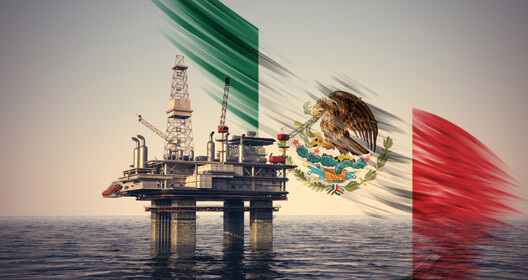When it comes to NAFTA and energy, there is no doubt that Mexico gets the better end of the deal with a series of special carve outs for its national industry. The result has been an unbalanced, incongruous relationship between the United States, Mexico and Canada. In other words, when it comes to energy, NAFTA is anything but free trade .
Take the following examples from chapter six of NAFTA, addressing energy trade:
An American company is permitted to open a power plant in Mexico to generate power for Texas, but, according to the provisions carved out for Mexico’s nationalized energy industry, the power plant would have to sell all of its excess power to Mexico’s Federal Electricity Commission (CFE) at the rate negotiated by CFE. ( Annex 602.3(5) ) If a cogeneration plant is built in Mexico with the express purpose of providing power for a Canadian company’s factory in Mexico, then, according to NAFTA, it must sell any excess power to CFE. ( Annex 602.3(5)(b) ) In both cases, the American and Canadian operations face a disadvantage in price negotiations because they are required to sell excess power to CFE only.
When it comes to oil and gas exploration, NAFTA includes a provision requiring the three countries to maintain incentives to encourage companies to find new energy reserves. ( Article 608.1 ) However, in the special provisions, Mexico is exempted from incentivizing – or even permitting – private exploration and development. This special provision makes clear that “the Mexican State reserves to itself” all E&P, nuclear power, foreign trade, transportation, storage, distribution and electrical supply within its own borders. ( Annex 602.3(1) ). In the U.S. and Canada, free trade in energy exploration must be promoted. In Mexico, the government can do what it chooses .
Mexico is allowed to “restrict the granting of import and export licenses for the sole purpose of reserving foreign trade” in a variety of energy goods including (but not limited to): aviation fuel, gasoline, shale and tar sands, diesel oil, most forms of commercial gasses and kerosene. ( Annex 603.6 ). The U.S. and Canada must keep import and export licenses open.
These carve outs meant to favor Mexico’s national energy industries have not been kind to Mexico’s economy, energy supply or business development. Mexico has insisted one form or another of nationalized energy for almost a century . Basic tenants of capitalism explain that a closed, national energy regime prohibits competition, leading to misalignment of resources and prices. Absent a truly robust and well-managed system in Mexico, this is what happened.
In 2014, historically low levels of oil production, higher energy consumption and depleted oil reserves led Mexico amend its constitution to open Mexico’s state energy industries to foreign investment. These changes permitted the Mexican government to auction off certain oil and gas leases to foreign, private companies for development and to allow foreign companies to participate in owning pipelines, refineries, petrochemical plants and even electricity generation. Mexico also committed to bringing gasoline and natural gas prices in line with market prices rather than setting them artificially.
Although the process has not always been smooth – Mexico is experiencing gasoline shortages and spikes in gasoline prices, in part, as a result of these efforts – the overall trend towards liberalization in Mexico’s energy industry is promising. Many companies have bid for offshore leases to produce oil and gas in the Gulf of Mexico and the opportunities to invest in Mexican energy businesses are growing.
Since the Mexican state is no longer the only legal investor, owner, producer, buyer and seller of energy and energy products in Mexico, there is now a potential to renegotiate chapter six of NAFTA and eliminate the special provisions and carve outs for Mexico. This would not only help improve Mexico’s energy situation, but improve trade relations amongst the three North American trade partners.

Grupo México proyecta invertir en energía
Story by Ellen R. Wald, Ph.D. is a historian and scholar of the energy industry / Petroleumworld
02 17 2017


